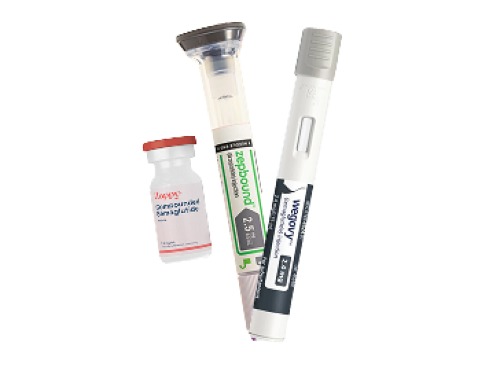Heartburn is a painful burning sensation in the chest that moves upward into the throat, so lest talk what to do if you need urgent care for heartburn? It is caused by stomach acids traveling backward from the esophagus into the esophagus and sometimes irritating the tissues lining the esophagus and pharynx. While most people experience heartburn occasionally, some develop it regularly. Some people experience pain, bloating, nausea, vomiting, burping, belching, regurgitation, cough, sore throat, hoarseness, and difficulty swallowing. These symptoms usually occur after meals and diminish within 30 minutes to 2 hours after eating. Other causes include smoking, alcohol consumption, obesity, stress, certain medications, hormonal changes during puberty, pregnancy, lactation, and sleep apnea.
How common is heartburn?
Heartburn occurs when stomach acids travel up into the esophagus, causing pain. While most people experience occasional heartburn, some people experience frequent episodes of heartburn. If your heartburn lasts longer than four weeks, it could indicate a more serious problem. This includes gastroesophageal reflux disease (GERD), where stomach contents flow backward into the esophagus. Other symptoms include chest pain, difficulty swallowing, coughing, hoarseness, nausea, vomiting, weight loss, and fatigue.
If you are experiencing frequent heartburn, you should speak to your doctor about whether something else is wrong. Your doctor may recommend tests such as endoscopy, upper GI X-rays, blood work, and sometimes a barium swallow test. These tests help identify what’s causing your heartburn and its seriousness.
What Causes Heartburn?
Heartburn occurs when stomach acids travel up into the esophagus and cause irritation. This causes pain behind the breastbone. If you’re experiencing severe heartburn, seek medical attention immediately. You could develop ulcers, bleeding, or even cancer.
The most common cause of heartburn is eating too fast. Food travels faster down your throat when you eat quickly, so you swallow air along with the meal. Swallow slowly and chew thoroughly—this helps keep your stomach contents moving smoothly through your digestive system.
If you’ve had heartburn for a long period, you might have gastroesophageal reflux disease (GERD), which happens when the LES doesn’t work correctly. In addition to making it difficult to digest foods, GERD can lead to inflammation of the esophagus, resulting in scarring and narrowing of the opening.
A hiatal hernia can contribute to heartburn because it allows stomach contents to flow backward into the chest cavity. Having a large amount of gas trapped in the abdomen can also irritate the esophagus.
Other factors include smoking, obesity, pregnancy, certain medications, and stress. Other conditions, such as asthma and chronic bronchitis, can worsen symptoms.
Heartburn Symptoms
Heartburn is caused by acid reflux traveling up into the esophagus. This causes the muscles lining the esophagus to relax, allowing food particles to travel further up the esophagus.
The symptoms of heartburn vary depending on how severe it is. If you experience mild heartburn, you might feel a burning sensation in your throat, chest, or stomach. You might also notice a sour or bitter taste in your mouth. Other possible signs are indigestion, nausea, vomiting, fatigue, and difficulty sleeping. Heartburn typically lasts less than 30 minutes.
If you experience moderate heartburn, you might feel burning in your chest, neck, shoulders, or upper abdomen. Your pain might worsen when you lie down or bend over. You could also have trouble swallowing. Moderate heartburn usually lasts about one hour.
Severe heartburn can cause shortness of breath, coughing, wheezing, chest tightness, and even fainting. Severe heartburn can last longer than four hours or go away without treatment.
Heartburn Prevention
Heartburn usually goes away within a few days, although it can persist longer in some cases. If you experience frequent episodes of heartburn, there are several things you can do to help reduce symptoms. These include:
- Avoiding certain foods that cause heartburn.
- Drinking plenty of water throughout the day.
- Eating smaller meals rather than three large ones.
- Not drinking alcohol while eating.
- Taking over-the-counter medications such as antacids or proton pump inhibitors (PPIs).
- Using a humidifier or vaporizer during cold weather.
Treatment Options
Treatment options include lifestyle modifications, over-the-counter drugs, and prescription medications. Over-the-counter treatments include antacids and pain relievers, including ibuprofen, naproxen, and acetaminophen. These relieve symptoms but don’t cure the problem. They’re best used short term. Antacid pills work by neutralizing stomach acid. Pain relievers reduce inflammation and help ease painful symptoms. Histamine receptor blockers block receptors in the esophagus that irritate. PPIs reduce gastric acid secretion and are effective for treating GERD.
If you notice signs of heartburn, contact your doctor. He or she may recommend tests to determine whether your symptoms are related to a medical condition. Your doctor may suggest treatment based on how often you have heartburn, how severe your symptoms are, and whether they interfere with your life.
Complications
If you experience frequent bouts of heartburn, it could indicate that you suffer from GERD. In fact, according to the National Institute of Diabetes and Digestive and Kidney Diseases, about 20 million Americans suffer from GERD.
To treat GERD, doctors often prescribe medication such as antacids, histamine blockers, proton pump inhibitors, or H2 receptor antagonists. However, some people find that these treatments don’t provide relief. For those patients, there are several less invasive options. One option includes lifestyle modifications such as avoiding spicy foods, caffeine, alcohol, fatty food, chocolate, citrus fruits, tomatoes, milk products, fried food, and carbonated beverages. Another option involves over-the-counter remedies like alginate fiber supplements, peppermint oil capsules, and ginger root tablets. And finally, if none of the above work, you may want to consider surgical intervention.
When to seek Urgent Care
Heartburn is one of the most common reasons people see their doctors. But even though many people experience occasional discomfort, there are some signs you should pay attention to. If your heartburn doesn’t improve within a few days, worsens, or becomes painful, you should talk to your doctor.
You should contact your doctor if your heartburn isn’t improving within a few days. Heartburn often goes away on its own, but if it lasts longer than three weeks, it could indicate something more serious.
Even though heartburn is common and usually temporary, it can cause more serious issues if left untreated. For example, if you notice blood in your vomit or diarrhea, you should seek medical help immediately. And if you’re experiencing chest pain, difficulty swallowing, trouble breathing, hoarseness, weight loss, or nausea, you should tell your doctor immediately.
Contact Zappy Health Today
Heartburn is a painful burning sensation in the chest that moves upward into the throat. It is caused by stomach acids traveling backward from the esophagus into the esophagus and sometimes irritating the tissues lining the esophagus and pharynx. While most people experience heartburn occasionally, some develop it regularly. Some people experience pain, bloating, nausea, vomiting, burping, belching, regurgitation, cough, sore throat, hoarseness, and difficulty swallowing. These symptoms usually occur after meals and diminish within 30 minutes to 2 hours after eating. Other causes include smoking, alcohol consumption, obesity, stress, certain medications, hormonal changes during puberty, pregnancy, lactation, and sleep apnea.
How common is heartburn?
Heartburn occurs when stomach acids travel up into the esophagus, causing pain. While most people experience occasional heartburn, some people experience frequent episodes of heartburn. If your heartburn lasts longer than four weeks, it could indicate a more serious problem. This includes gastroesophageal reflux disease (GERD), where stomach contents flow backward into the esophagus. Other symptoms include chest pain, difficulty swallowing, coughing, hoarseness, nausea, vomiting, weight loss, and fatigue.
If you are experiencing frequent heartburn, you should speak to your doctor about whether something else is wrong. Your doctor may recommend tests such as endoscopy, upper GI X-rays, blood work, and sometimes a barium swallow test. These tests help identify what’s causing your heartburn and its seriousness.
What Causes Heartburn?
Heartburn occurs when stomach acids travel up into the esophagus and cause irritation. This causes pain behind the breastbone. If you’re experiencing severe heartburn, seek medical attention immediately. You could develop ulcers, bleeding, or even cancer.
The most common cause of heartburn is eating too fast. Food travels faster down your throat when you eat quickly, so you swallow air along with the meal. Swallow slowly and chew thoroughly—this helps keep your stomach contents moving smoothly through your digestive system.
If you’ve had heartburn for a long period, you might have gastroesophageal reflux disease (GERD), which happens when the LES doesn’t work correctly. In addition to making it difficult to digest foods, GERD can lead to inflammation of the esophagus, resulting in scarring and narrowing of the opening.
A hiatal hernia can contribute to heartburn because it allows stomach contents to flow backward into the chest cavity. Having a large amount of gas trapped in the abdomen can also irritate the esophagus.
Other factors include smoking, obesity, pregnancy, certain medications, and stress. Other conditions, such as asthma and chronic bronchitis, can worsen symptoms.
Heartburn Symptoms
Heartburn is caused by acid reflux traveling up into the esophagus. This causes the muscles lining the esophagus to relax, allowing food particles to travel further up the esophagus.
The symptoms of heartburn vary depending on how severe it is. If you experience mild heartburn, you might feel a burning sensation in your throat, chest, or stomach. You might also notice a sour or bitter taste in your mouth. Other possible signs are indigestion, nausea, vomiting, fatigue, and difficulty sleeping. Heartburn typically lasts less than 30 minutes.
If you experience moderate heartburn, you might feel burning in your chest, neck, shoulders, or upper abdomen. Your pain might worsen when you lie down or bend over. You could also have trouble swallowing. Moderate heartburn usually lasts about one hour.
Severe heartburn can cause shortness of breath, coughing, wheezing, chest tightness, and even fainting. Severe heartburn can last longer than four hours or go away without treatment.
Heartburn Prevention
Heartburn usually goes away within a few days, although it can persist longer in some cases. If you experience frequent episodes of heartburn, there are several things you can do to help reduce symptoms. These include:
- Avoiding certain foods that cause heartburn.
- Drinking plenty of water throughout the day.
- Eating smaller meals rather than three large ones.
- Not drinking alcohol while eating.
- Taking over-the-counter medications such as antacids or proton pump inhibitors (PPIs).
- Using a humidifier or vaporizer during cold weather.
Treatment Options
Treatment options include lifestyle modifications, over-the-counter drugs, and prescription medications. Over-the-counter treatments include antacids and pain relievers, including ibuprofen, naproxen, and acetaminophen. These relieve symptoms but don’t cure the problem. They’re best used short term. Antacid pills work by neutralizing stomach acid. Pain relievers reduce inflammation and help ease painful symptoms. Histamine receptor blockers block receptors in the esophagus that irritate. PPIs reduce gastric acid secretion and are effective for treating GERD.
If you notice signs of heartburn, contact your doctor. He or she may recommend tests to determine whether your symptoms are related to a medical condition. Your doctor may suggest treatment based on how often you have heartburn, how severe your symptoms are, and whether they interfere with your life.
Complications
If you experience frequent bouts of heartburn, it could indicate that you suffer from GERD. In fact, according to the National Institute of Diabetes and Digestive and Kidney Diseases, about 20 million Americans suffer from GERD.
To treat GERD, doctors often prescribe medication such as antacids, histamine blockers, proton pump inhibitors, or H2 receptor antagonists. However, some people find that these treatments don’t provide relief. For those patients, there are several less invasive options. One option includes lifestyle modifications such as avoiding spicy foods, caffeine, alcohol, fatty food, chocolate, citrus fruits, tomatoes, milk products, fried food, and carbonated beverages. Another option involves over-the-counter remedies like alginate fiber supplements, peppermint oil capsules, and ginger root tablets. And finally, if none of the above work, you may want to consider surgical intervention.
When to seek Urgent Care
Heartburn is one of the most common reasons people see their doctors. But even though many people experience occasional discomfort, there are some signs you should pay attention to. If your heartburn doesn’t improve within a few days, worsens, or becomes painful, you should talk to your doctor.
You should contact your doctor if your heartburn isn’t improving within a few days. Heartburn often goes away on its own, but if it lasts longer than three weeks, it could indicate something more serious.
Even though heartburn is common and usually temporary, it can cause more serious issues if left untreated. For example, if you notice blood in your vomit or diarrhea, you should seek medical help immediately. And if you’re experiencing chest pain, difficulty swallowing, trouble breathing, hoarseness, weight loss, or nausea, you should tell your doctor immediately.
Contact Zappy Health Today






